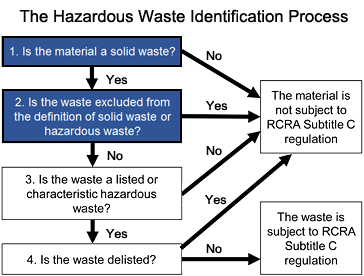The 5-Second Trick For Reclaim Waste
Table of ContentsThe Greatest Guide To Reclaim Waste3 Easy Facts About Reclaim Waste ShownWhat Does Reclaim Waste Do?Top Guidelines Of Reclaim WasteWhat Does Reclaim Waste Do?
Discover the types, occurrences, and forms of liquid waste. Residential sewer waste refers to the waste and products from a residential septic tank. This kind of waste is developed by humans in residences, colleges, and other structures. This only includes sewage-disposal tanks that have a drainpipe field. The appropriate administration and disposal of domestic sewer waste call for fluid waste to be transferred to a sewage therapy plant where the appropriate methods and devices are put on detoxify and deal with waste.
Business waste typically consists of possible hazards, such as combustible materials or a mixture of liquid and solid waste items, and needs an extra sophisticated and comprehensive disposal process. The disposal of business waste commonly involves the filtering of waste prior to transport to ensure risk-free and correct disposal. Industrial waste is created from by-products and runoff of industrial processes and manufacturing.
This kind of waste can not use the exact same sewer administration transport or procedures as septic or industrial liquids. The industrial waste management process needs the inspection and screening of fluid waste prior to it undergoes the disposal procedure (liquid waste removal). Drainage waste is the fluid waste that originates from runoff and excess stormwater in extremely inhabited locations or cities
Overflow waste can create contamination and flooding if not dealt with appropriately. Discover more about sewer cleaning and waste management. Making sure correct waste management can prevent disasters and minimize ecological damage. Both individuals in household setups and specialists in business or manufacturing sectors can gain from comprehending the procedures and guidelines of liquid waste administration.
10 Easy Facts About Reclaim Waste Described
Call PROS Services today to find out about our waste management and disposal solutions and the proper means to take care of the fluid waste you generate.
(http://www.askmap.net/location/7161699/australia/reclaim-waste)Do you know what happens to your water when you disengage, purge the toilet or drain pipes the cleaning device? No? Well, it's worth knowing. This so-called 'wastewater' is not just an important resource yet, after therapy, will be launched to our land, rivers or the sea. Made use of water from toilets, showers, baths, kitchen area sinks, laundries and commercial processes is called wastewater.

water used to cool down machinery or clean plant and devices). Stormwater, a type of wastewater, is drainage that moves from farming and metropolitan locations such as roofing systems, parks, gardens, roadways, courses and rain gutters right into stormwater drains pipes, after rainfall. Stormwater flows untreated straight to local creeks or rivers, ultimately reaching the sea.
The Ultimate Guide To Reclaim Waste
In Queensland, most wastewater is dealt with at sewage therapy plants. Wastewater is delivered from residential or commercial sites through a system of sewers and pump terminals, called sewerage reticulation, to a sewage treatment plant. City governments construct, maintain and operate most sewage treatment plants. Operators are licensed under the Environmental Protection Act 1994 to release treated wastewater at an acceptable environmental criterion right into waterways.
The Division of Natural Resources advises city governments about managing, operating and keeping sewage systems and therapy plants. In unsewered locations, regional governments may require householders to set up specific or family sewage treatment systems to treat residential wastewater from commodes, cooking areas, washrooms and washings. The Department of Natural Resources authorises using family systems when they are shown to be effective.
In some new communities, therapy of some stormwater to eliminate litter, sand and crushed rock has actually started using gross toxin traps. Wastewater therapy occurs in 4 phases: Gets rid of solid issue.
Makes use of little living microorganisms understands as micro-organisms to break down and eliminate staying liquified wastes and fine particles. Micro-organisms and wastes are incorporated in the sludge.
Little Known Questions About Reclaim Waste.
Nutrient elimination is not available whatsoever sewer treatment plants due to the fact that it needs pricey specialist devices. It is coming to be more common in Queensland. Clear fluid effluent produced after therapy might still contain disease-causing micro-organisms. If this effluent is released into rivers such as rivers or the sea, the micro-organisms will at some point die out.

This usually means wastewater has actually to be dealt with or impurities gotten rid of before it can be released to waterways. Many wastewater flows right into the sewage system. Under the Act, neighborhood federal governments provide approvals and licences for eco appropriate activities (ERAs) entailing wastewater launches that might have a local influence. The department administers authorizations and permits to Ages entailing wastewater launches that might have a regional or statewide influence.
Reclaim Waste - The Facts
Or else, examples are taken for lab evaluation. Often several tests are needed to establish the levels of each of the various toxins such as oils, heavy steels and pesticides in water. Tracking supplies valid info about water quality and can verify that licence problems are being fulfilled. The information obtained via monitoring offers the basis for making water quality choices.